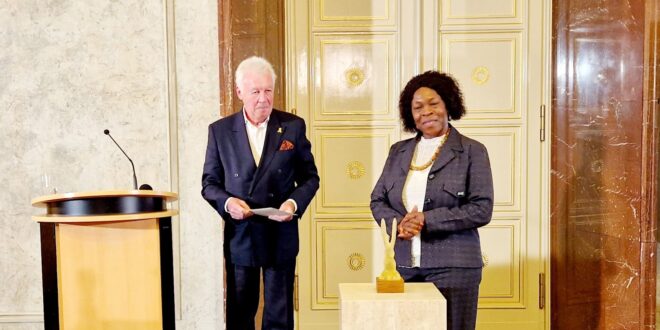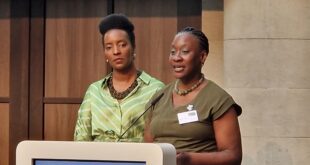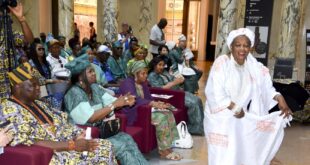On Friday, Berlin’s Rotes Rathaus, the historic town hall of the German capital city, played host to the annual HeldinnenAward (‘HeroinesAward’) ceremony.
This year’s recipients, Virginia Wangare Greiner and Dr Cornelia Strunz, who each received 5,000 euros, were honoured for their many years of dedicated work in combating female genital mutilation (FGM).
Awarded by the Alice Schwarzer Foundation, the HeldinnenAward recognizes women who fight to improve the situation of women, whether through their professional work, social engagement or personal commitment.

Alice Schwarzer, the foundation’s chairperson and an influential feminist, took to the stage to emphasize the global severity of FGM, which she described as “one of the worst forms of human rights violations.”
Schwarzer, a prominent German journalist and activist, highlighted that 230 million women worldwide are affected by FGM, according to estimates by the World Health Organisation, and noted that despite decades of activism, the problem has only grown. The procedure is prohibited in many countries, but is sometimes practised anyway for cultural and other reasons.
“This calls for renewed engagement from all of us,” she urged, advocating for greater political accountability in countries where FGM persists. Schwarzer’s foundation has long been committed to amplifying the voices of marginalized women and girls.
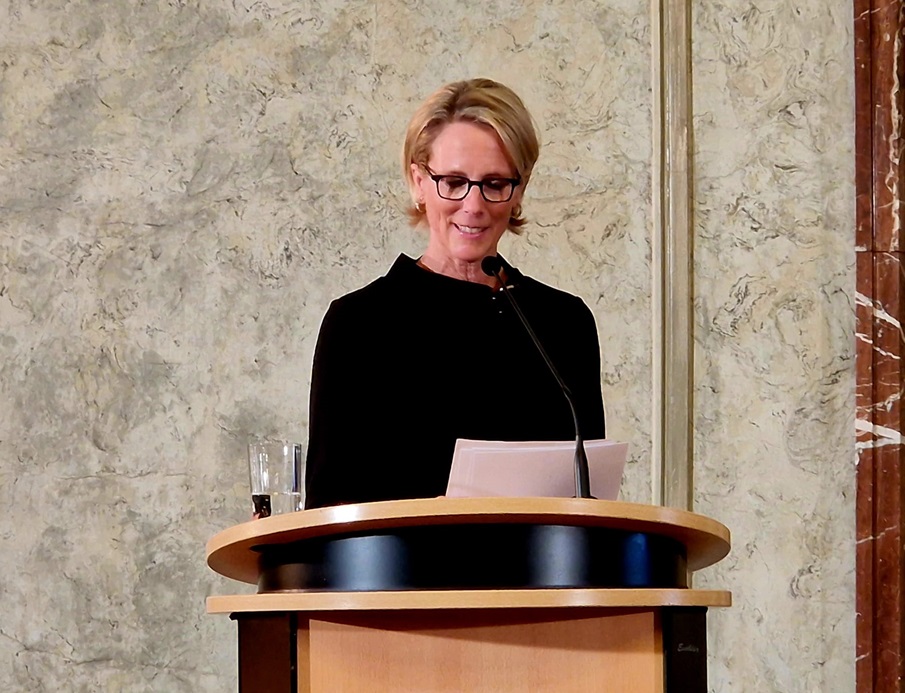
Virginia Greiner, one of the awardees, delivered a powerful acceptance speech detailing her work through Maisha e.V., the organization she founded in 1996 to support African women, girls and families in Frankfurt.
Ms Greiner spoke passionately about the immense social pressure faced by women who resist the practice for their daughters. “In many parts of the world, cultural support for FGM is still strong,” she noted, calling for more backing for organizations like Maisha that are on the frontline in the fight against FGM.
Maisha conducts awareness campaigns about FGM, particularly within African communities, and offers support to victims.
Greiner, who is originally from Kenya, has dedicated years to empowering African women and families in Germany through healthcare, counselling and social support and has received numerous awards for her efforts. In June 2006, she was awarded the Federal Cross of Merit by then-President of Germany, Dr Horst Köhler. She was the first person of African origin to receive this national honour.
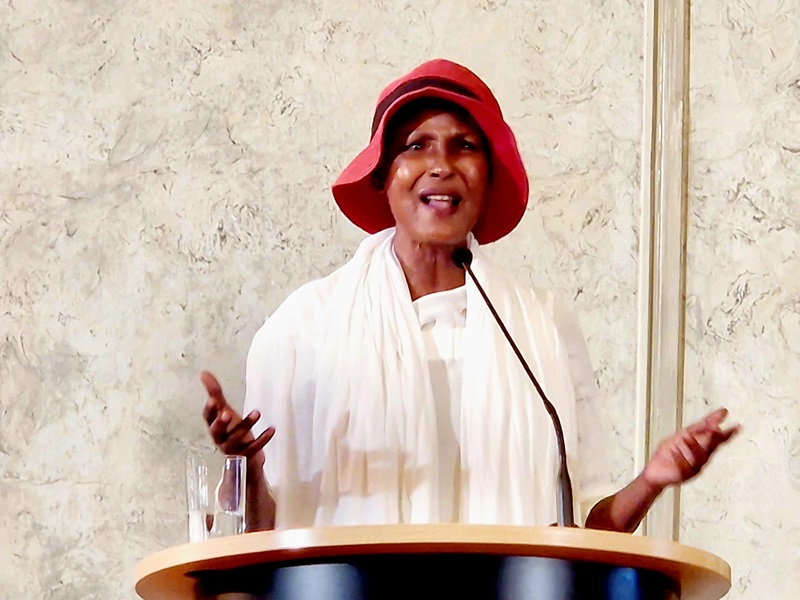
The second awardee, Dr Cornelia Strunz, was introduced with a laudation by Waris Dirie, the renowned Somali-born model, anti-FGM activist and author of Desert Flower, a memoir recounting her own experience with FGM.
Dirie voiced her outrage at the continued prevalence of FGM, condemning political inertia in addressing the practice.
Dr Strunz, a gynaecologist and surgeon, attends to affected women at the Desert Flower Center in Berlin, a facility that cares for genitally mutilated women.
She spoke of her work with survivors, many of whom seek restorative surgery as a means of healing. Women who have undergone genital mutilation often have major health problems, both physical and psychological.
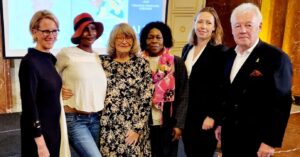
“They want to feel like a complete woman again,” she explained. Strunz paid tribute to countless silent supporters in the anti-FGM movement and called for stronger support networks for survivors.
The ceremony, held in the stately Rotes Rathaus, was a solemn yet impactful reminder of the ongoing struggle against FGM. As the event concluded, attendees were left with a renewed call to action: support those dedicated to abolishing this practice and advocate for the protection and restoration of survivors’ dignity and rights.
Femi Awoniyi
 THE AFRICAN COURIER. Reporting Africa and its Diaspora! The African Courier is an international magazine published in Germany to report on Africa and the Diaspora African experience. The first issue of the bimonthly magazine appeared on the newsstands on 15 February 1998. The African Courier is a communication forum for European-African political, economic and cultural exchanges, and a voice for Africa in Europe.
THE AFRICAN COURIER. Reporting Africa and its Diaspora! The African Courier is an international magazine published in Germany to report on Africa and the Diaspora African experience. The first issue of the bimonthly magazine appeared on the newsstands on 15 February 1998. The African Courier is a communication forum for European-African political, economic and cultural exchanges, and a voice for Africa in Europe.

